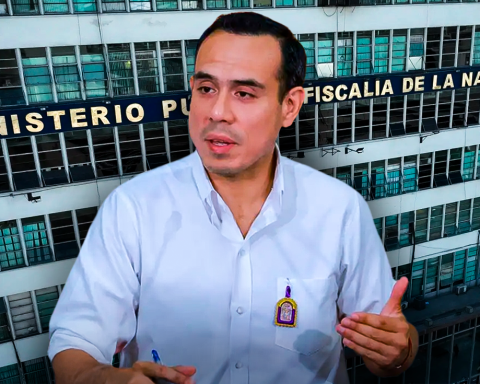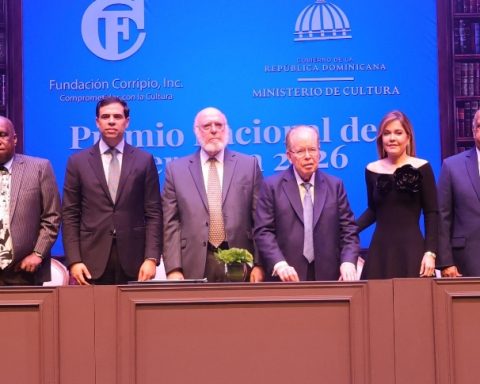2024 will go down in history as one of the periods in which the General Budget of the Nation was a leading issue, both due to the scandals of the accounts approved in 2023 and the cuts that had to be made to the current periods due to the drop in tax collection, as well as for everything What has happened with next year’s accounts, which are still subject to uncertainty?
Still in the local context, the fruitless meetings between the Ministry of Finance and Congress are being analyzed, which led to the failure to meet the deadlines established by national legislation of September 15 and 24 to approve the 2025 Budget project and to leave this initiative in legal limbo, thus conjuring a scenario that is happening for the first time in history, under the circumstances that have occurred.
You may be interested: The reasons why JP Morgan lowered Ecopetrol’s rating
Although the Casa de Nariño has already said that they are preparing the decree to regulate next year’s expenses and income, the country still has several ways out to avoid entering into a fiscal dictatorship and in the event that this cannot be prevented, the amount could not be $523 billion as indicated by the Minister of Finance if they want to avoid the Court overturning it for unconstitutionality.
In order to understand what comes with this rule, Portafolio consulted to several experts in the field, national legislation and the rulings of the high courts on the issue, finding that if there were a willingness for dialogue between the Executive and the Legislative, the parties could sit down to talk to find points of agreement and that in the event that the decree was insisted upon, the Government would first have to demonstrate that there was negligence on the part of the Economic Commissions.
2025 Budget Vote
Photo – CEET
There is still time
A first opinion on what is happening is that of Juan Camilo Restrepo, former Minister of Finance and expert in budgetary law, who indicated that although the budget should have been approved in the first debate before September 25, the immovable date is October 20, since the law requires that this initiative be debated for three months and only two have passed.
“What is happening at the moment is that they have not reached an agreement, but that does not mean that Congress refuses to issue the Budget. Since the differences persist, they simply have to continue until the entire time stated in the law is exhausted. If by October 20 it has not been issued, then it must be done by decree. There are positions found that must be reviewed and discussed, because the stability of the country is at stake,” he explained.
For Restrepo Salazar, what is currently happening is the fault of the National Government and that would lead to a different situation, since the Budget can only be issued by decree, as long as it is proven that there was negligence on the part of the economic commissions and that is something that he believes has not happened.
For reading: Water contributions to power generation reservoirs are the lowest in 40 years
“We are in this discussion because of the Government, which is pretending that The budget amount includes both certain revenues from the basic budget and contingent revenues from a tax reform of $12 billion, and neither in public accounting nor in private accounting can apples and oranges be added, as is being done by adding the basic budget of certain revenues, plus contingent revenues, which should be treated in a different way,” he said.
The Court has already ruled
Through ruling C-1645 of 2000, the Constitutional Court had already made clear what should be done in cases like this, depending on who is responsible for not issuing the budget accounts and proving that there was negligence in the fulfillment of the respective functions.

Constitutional Court
Courtesy
According to this court, when the blame falls on the Government and it is verified that the Executive was the one who failed to comply with its constitutional obligation, the immediate measure is to apply the previous year’s budget. However, it maintains the power to adjust expenses, which includes reducing items and merging jobs, in order to ensure adequate fiscal control in the absence of a new approved budget.
On the other hand, the ruling states that in cases where Congress does not approve the budget presented by the Government within the established period, it is not considered a breach of its duty, but rather the exercise of its constitutional autonomy and the consequence is that the budget proposed by the Government automatically comes into force. It is not necessary to repeat the process or modify the budget, since the Constitution establishes this measure to ensure the continuity of financial management.
Read also: Would Petro recognize Edmundo González in Venezuela? His response to Congress
However, at several points it makes clear that it is necessary to exhaust the entire process. within the three months that the Constitution says the debate on the General Budget of the Nation must last. Likewise, if it is proven that there was negligence on the part of the Executive and that this influenced the failure to approve the project, they lose the power to decide the amount of expenses for the next term.
Taxes by decree
A final element to consider in light of what is coming with the Budget is the observation of Henry Amorocho, professor at the Universidad del Rosario, who indicated that if the amount of $523 billion is approved, the approval of the financing law would be required, which could be interpreted as the imposition of taxes via decree and generate vices of unconstitutionality.
“A spending goal of $523 billion could not be assumed with a law of financing that was not approved, because of course it is not feasible for the executive authority to create income by an ordinary decree and here basically, if that amount is aspired to, it would only be with the product of a tax reform that has not been carried out. Therefore, in order for there to be legality and for there to be strict connection with the principle of legal reserve and constitutional review, the Budget must indisputably be issued for 511 billion pesos,” said this teacher.

Taxes
iStock
Amorocho concluded by agreeing with Juan Camilo Restrepo that the Budget process has not yet finished and is in a stage that requires the search for consensus, for which there is until October 20, as established by the Organic Budget Statute. Before that date, Any budget decree would violate the timetable and could be considered unconstitutional.


















